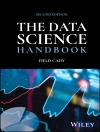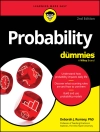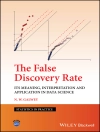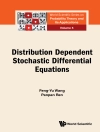This book provides a groundbreaking introduction to the likelihood inference for correlated survival data via the hierarchical (or h-) likelihood in order to obtain the (marginal) likelihood and to address the computational difficulties in inferences and extensions. The approach presented in the book overcomes shortcomings in the traditional likelihood-based methods for clustered survival data such as intractable integration. The text includes technical materials such as derivations and proofs in each chapter, as well as recently developed software programs in R (“frailty HL”), while the real-world data examples together with an R package, “frailty HL” in CRAN, provide readers with useful hands-on tools. Reviewing new developments since the introduction of the h-likelihood to survival analysis (methods for interval estimation of the individual frailty and for variable selection of the fixed effects in the general class of frailty models) and guiding future directions, the book is of interest to researchers in medical and genetics fields, graduate students, and Ph D (bio) statisticians.
Table des matières
Introduction.- Classical Survival Analysis.- H-likelihood Approach to Random-Effects Models.- Simple Frailty Models.- Multi-Component Frailty Models.- Competing Risks Frailty Models.- Variable Selection for Frailty Models.- Mixed-Effects Survival Models.- Joint Model for Repeated Measures and Survival Data.- Further Topics.- A Formula for fitting fixed and random effects.- References.- Index.
A propos de l’auteur
Il Do Ha is a full professor in the Department of Statistics at Pukyong National University in South Korea. His research interests are multivariate survival analysis using h-likelihood, inferences on random-effect models, clinical trials and financial statistics. Dr. Ha received his Ph.D. degree in statistics from Seoul National University. He has served as an Associate Editor of Computational Statistics until 2008-2012 and has been a fellow of the Royal Statistical Society (RSS) since 2006. Jong-Hyeon Jeong is a full professor in the Department of Biostatistics at University of Pittsburgh in USA. His research interests are in survival analysis, including competing risks, quantile residual life, empirical likelihood, h-likelihood, frailty model and clinical trials. He has published his first book with Springer: Jeong, J.-H. (2014) Statistical Inference on Residual Life, New York: Springer. Dr. Jeong received his Ph.D. degree in statistics from University of Rochester. He has been a fellow of the American Statistical Association (ASA) since 2017 as well as an elected member of the international Statistical Institute (ISI) since 2007. Dr. Jeong is also serving on the editorial board for the journal “Lifetime Data Analysis”. Youngjo Lee is a full professor in the Department of Statistics at Seoul National University in South Korea and also an adjunct professor of Karolinska Institutet in Sweden. His research interests are extension, application, theory and software development for hierarchical GLM (HGLM) and multivariate survival models using h-likelihood. He has published a HGLM book with Chapman and Hall: Lee, Y., Nelder, J. A. and Pawitan, Y. (2017) Generalized Linear Models with Random Effects: Unified Analysis via H-likelihood, 2nd edition, Boca Raton: Chapman and Hall. Dr. Lee received his Ph.D. degree in statistics from Iowa State University. He has been a fellow of the Royal Statistical Society (RSS) since 1996 as well as the American Statistical Association (ASA) since 2013.












